#Kiss FM
Text
Things I never thought I’d here Pedro say: “Biggup the Mandem” 😂
25 notes
·
View notes
Text
I saw it on Twitter first, but this radio station in Vancouver is only playing Killing in the Name by Rage Against the Machine over and over and has been for the past couple hours.
Looking for the article to share about it, but I've been tuning in and the dj is excellent.
16 notes
·
View notes
Text


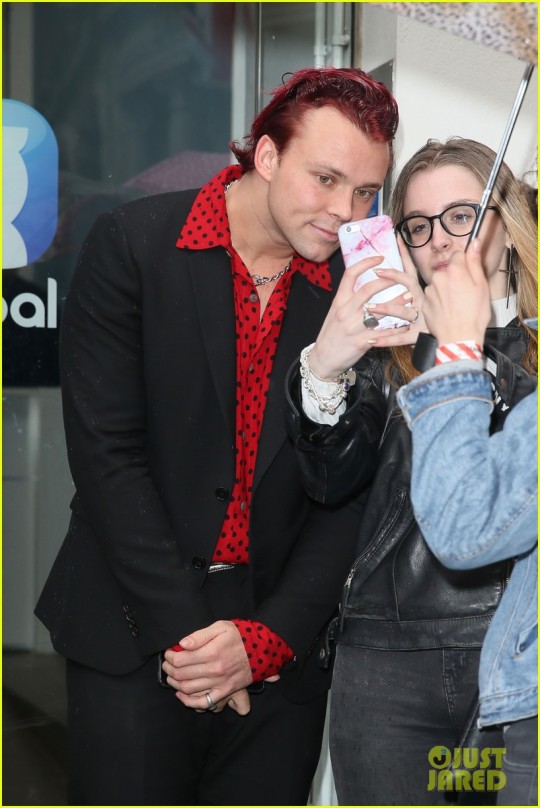

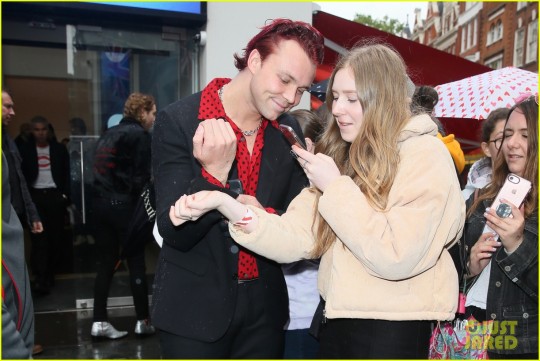
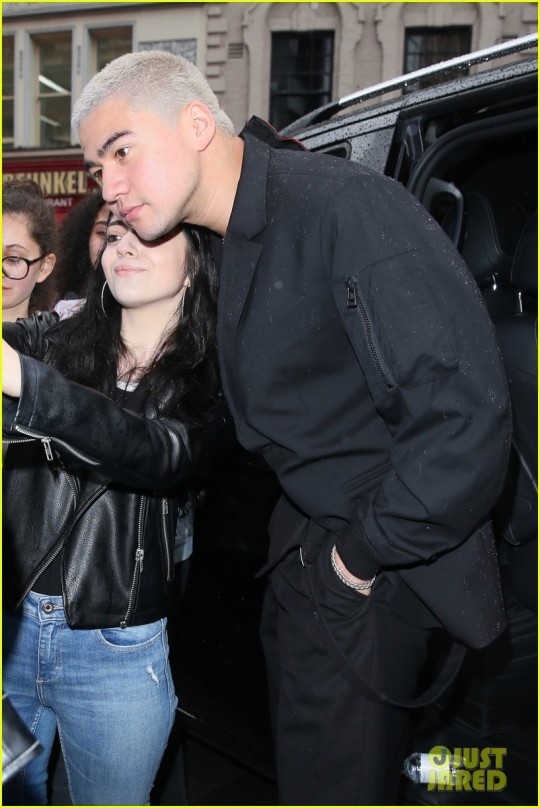

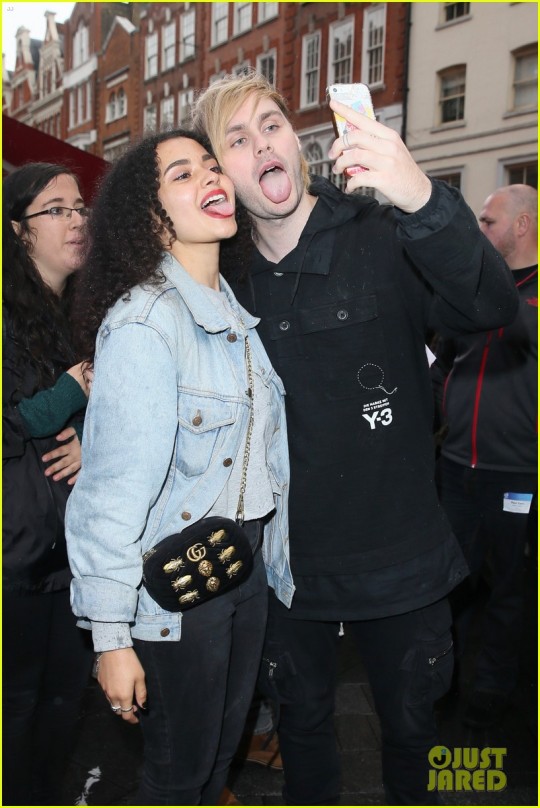
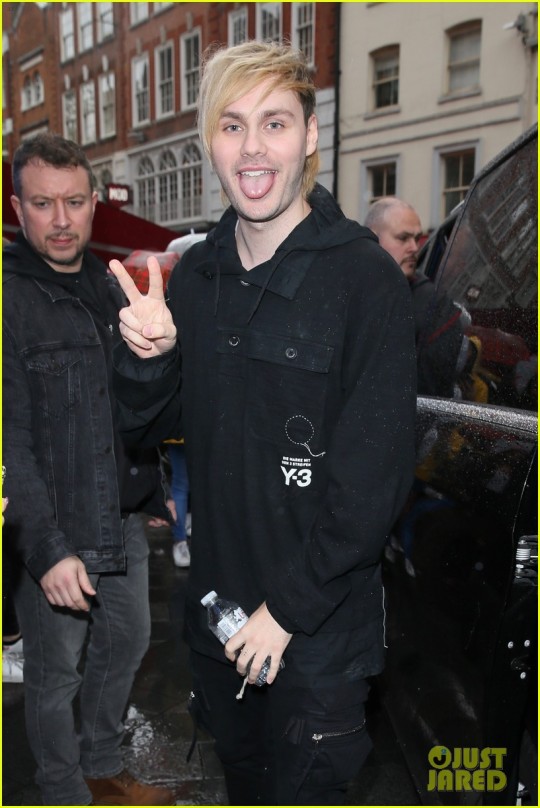
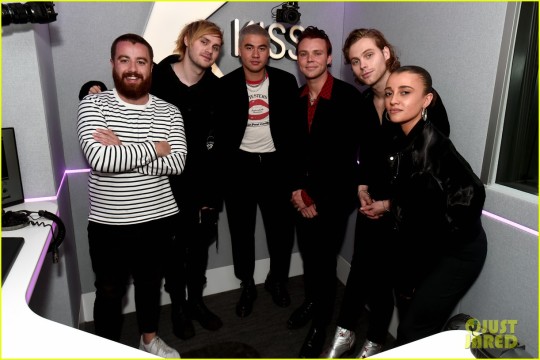
On a wet London day, 5SOS visit Global Radio to do interviews, and mingle with fans
10 June 2019 (Photos: Just Jared)
#this day in 5sos history#2019#5sos#calum hood#ashton irwin#luke hemmings#michael clifford#london#fan interaction#global radio#kiss fm#5 seconds of summer#calum 5sos#ashton 5sos#calum#luke 5sos#michael 5sos#10 june#sensation shirt
16 notes
·
View notes
Text
youtube
Jason Momoa's first lesbian date
His best interview ever? 🤣❤️ A wonderful job from Harriet Rose here 🙌🤣 and I sincerely hope Dante gets those teeth gems ✨
1 note
·
View note
Text
One little indie music show : 1980-1981 : Saturday night 10 to midnight, Metro Radio
“You will present a weekly two-hour rock music show on Saturday night,” my manager informed me.
No if’s or but’s. No offer over which to mull. No demo tape to produce. No question asked about previous experience. Without warning, I was appointed as presenter on one of Britain’s largest commercial radio stations. I had just started a full-time backroom job at ‘Metro Radio’ but had never asked to present a show. This was my first paying job in radio and suddenly I was also to be put on-air. The start of my radio career seemed to be heading in a positive direction.
Some aspiring DJs spend their whole life trying to secure a presenting job on radio, often without success. I felt slightly guilty that this opportunity had fallen into my lap without effort. My employer did not even realise that I had started presenting for various London pirate stations seven years earlier, as such lawbreaking activities were not productive additions to a CV then. A decade into the future, employed as programme director of London’s ‘KISS FM’, one young hopeful desiring a DJ job would sit in the station’s reception area day after day, awaiting his opportunity to buttonhole me on my way to lunch at the ‘greasy spoon’ on Highbury Corner. Little did he know that we already had the largest DJ roster of any British radio station, or that management had just cut payments per show by half, or that several loyal presenters had been made redundant within months of launch. Oblivious, he was not so much ‘networking’ as ‘stalking’.
Management at Metro Radio seemed not to care one jot what was broadcast evenings and overnight because commercial stations then believed their advertisers were only interested in daytime shows and that their most significant audience was housewives. My small additional payment for the rock show was eaten into by the cost of driving twenty miles to the studio on Saturday night and then back again in the early hours of Sunday. Nevertheless, the station would jump at any chance to cut its minor expenses, such as the occasion excellent overnight presenter Tony Crosby was replaced in 1981 by a new DJ who offered to do the same show for free. Never mind the quality, feel the penny-pinching! (Tony went on to train as a solicitor.)
No direction was offered me as to what to do in my show. Whereas daytime presenters were required to wait outside programme controller Mic Johnson’s office for individual appointments to hear his critique whenever a JICRAR ratings book was published, management expressed zero interest in what I was doing on-air. There were already two other rock shows on the station. My line manager Malcolm Herdman played two hours of heavy metal and hard rock. Full-time producer John Coulson used his two hours to play an esoteric mix of mainstream rock and read passages from ‘beat generation’/‘new journalism’ authors. I decided to fill the evident gap for the ‘indie’ music that had emerged after several years of punk.
Music trade weekly ‘Record Business’ had published its first weekly ‘indie’ chart in January 1980, following a suggestion by Iain McNay, founder of London’s ‘Cherry Red Records’. I decided to use one hour of my show to run down this chart, playing the new entries and highest climbing singles. As far as I know, mine was the first ever British radio ‘indie’ chart show and was soon mentioned in the ‘indie’ columns of the music trade press. Most ‘indie’ releases were not supplied to commercial radio stations because there was zero possibility of them being playlisted, necessitating me to establish contact with the main ‘indie’ distributor, ‘Rough Trade’ in London, to receive copies. Each week, I would phone its very helpful director and head of promotions Scott Piering to request records that he would then mail to me (later that decade I worked in Scott’s office).
In the other hour of my show, I would play a selection of newly released album tracks, both indie and mainstream. Working full-time in the station’s record library, I had access to all major label releases that arrived either by post or from weekly visits by record company promotion staff. I would place interesting new albums in a holdall I carried back and forward to the show although, with only time to play around fifteen tracks within an hour, my hoard of unplayed recent releases grew heavier by the week. My running order ranged from ‘Steely Dan’ to ‘Joy Division’ to ‘Crass’, none of which were exposed elsewhere within the station’s output.
Although the Tyneside local band scene then was dominated by heavy metal bands and record labels such as ‘Neat’ and ‘Guardian’, there were a few ‘indie’ bands that were recording good quality demo’s or releasing their records independently. I received a nice letter from Paddy McAloon asking me to play his group ‘Prefab Sprout’s first self-published single. I had already been the lone person not walking straight past the stage when the band had performed at the Durham Miners’ Gala, so I was happy to oblige. There were some excellent local bands, including ‘Dire Straits’ and ‘The Police’ who were quickly signed by major labels, but also many that went largely unnoticed until ‘Kitchenware Records’ launch in Newcastle in 1982. I tried to play any local band recordings I found or received.
Because my two hours on-air were so precious, I talked minimally between records and rarely featured interviews. I recall receiving a telegram at home from the station one day asking me to phone it urgently. Our house had no phone so I had to walk to the one phone box in Sherburn Village and call in. Was I interested in recording an interview for my show with ‘Duran Duran’ who were promoting their first single release ‘Planet Earth’? I turned down this opportunity because the group was not local, were not ‘indie’ (having already signed to ‘EMI’) and their music was audibly more ‘pop’ than ‘rock’. However, I did interview local artists such as Pauline Murray from Ferryhill whose first solo album (after the punk group ‘Penetration’) sounded remarkably innovative and remains one of my favourite recordings.
I spent quite a lot of time each week compiling a local ‘gig guide’ from adverts in local newspapers (pre-internet newsprint) and flyers. I would update it each week, type it out myself, pin it on the radio station’s noticeboard and mail copies to all the local record shops. In my show, I would read out the following week’s concerts though I never heard any other presenter refer to my list because, beyond Malcolm and myself, the station seemed to be disconnected from the local music scene. On occasional visits to 'Volume Records', the only ‘indie’ record shop in Newcastle, I would secretly feel proud to see the latest A4 sheet of gigs I had mailed out pinned to its noticeboard. Like my show’s content, the reason for undertaking this research-intensive work was because nobody else seemed to be exposing this information at the time. There was no ‘what’s on’ publication for the region.
Although I had competently operated radio studio equipment myself since my days at school recording pirate radio shows, management at Metro Radio insisted I sat in a soundproofed studio in front of the microphone while a ‘technical operator’ facing me from an adjoining control room played the records, advertisements and mixed the audio. I was unfamiliar with this arrangement, which the station’s managers had brought with them from overstaffed BBC local radio stations at which they had worked previously. I was extremely lucky to have had John Oley assigned as my ‘T.O.’, one of the most professional and enthusiastic people I have had the pleasure to work with in radio. His contribution to my show was enormous and freed me to talk my rubbish on-air and answer the phone line when I occasionally held competitions.
Metro Radio showed no interest in promoting my show so it seemed a miracle when I started receiving letters from listeners who had discovered it. In the days before internet or community stations, each region of Britain was served by only one local BBC station and one commercial music station. Although my show was tucked away in the weekend schedule, it still felt groundbreaking to play music little heard outside of John Peel’s weeknight show on national ‘BBC Radio One’. There were quite a few records lasting only two or three minutes that each required several hours’ work transferring them to quarter-inch tape in order to edit out swear words with a razor blade and white editing tape on a metal block. If only those bands knew how much extra effort was necessary just for them to receive one radio play!
Living in a rural village, there were Saturday nights during winter snows when I was unable to drive to the station. Snowploughs would habitually clear the roads eastward from Durham City as far as the junction with the A1(M) motorway but, frustratingly, not the further one mile beyond to my home. I would have to trudge out in icy temperatures to the public phone box and call either Malcolm Herdman or John Coulson at home, asking if they could reach the studio to fill in for me on those days. Because they lived in Newcastle city, I think they found it hard to believe that I was literally ‘snowed in’. Unfortunately, my salary was insufficient to contemplate a relocation nearer my workplace, meaning I missed out on concerts and the city nightlife which I would have loved to explore.
All good things come to an end. Quickly in my case. Metro Radio made me redundant from my full-time job. I continued to present my Saturday night show for a while through 1981 but the expense of maintaining a car to drive to Newcastle was proving greater than my payments from the station, which had to be subtracted from my Unemployment Benefit. I was applying for any relevant vacancy in the radio and music industries but getting nowhere. In the end, I had to follow Tebbit’s advice and get on my bike (well, in my car to be accurate), leaving the region where I had lived the last five years in order to take a totally different job 218 miles down south. It was disappointing because I had acquired so much knowledge of indie music, the regional music scene and had built an audience for my unique radio show.
The start of my radio career now seemed to be heading in a negative direction. I was unable to secure work in the broadcast industry for a further four years and, only then, by taking a contract in Israel on a pirate radio ship that paid little more than expenses. However, I have always treasured the memories of my time working alongside John Oley and Tony Crosby late on Saturday nights when the only other person in the darkened Metro Radio building on a bleak industrial estate was the security guard downstairs. This was when innovative radio programmes were made … even though Metro Radio probably never realised it.
Postscript: Forty years later, I received a polite email from a member of a former local band enquiring if I still had their demo tape I had been sent and played on my Metro Radio show. Sadly, no.
#career#commercial radio#Grant Goddard#indie music#KISS FM#local radio#Metro Radio#music#Newcastle#radio#radio broadcasting#radio industry#radio sector#radio station
1 note
·
View note
Text
Culprits Uncovered! Behind the scenes on Marvel UK’s rare 1990s custom comic, “The Dangerous Breakfast”
Is a Kiss FM tie-in title one of the rarest Marvel UK “custom comics” to ever be produced… and who worked on it?
Here at downthetubes, we’ve followed up on a query about what may be one of the rarest Marvel UK “custom comics” to ever be produced, and, thanks to those involved, found out more about it.
The title in question is The Dangerous Breakfast, produced in 1994 to mark Kiss FM’s third birthday, created in partnership with the radio station.
Very few copies seem to have survived, and collectors…
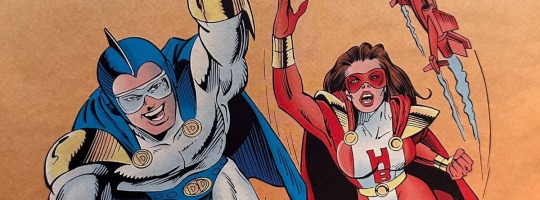
View On WordPress
1 note
·
View note
Text
Oga Obinna leaves Kiss FM after one year at the station
The radio presenter who has operated the morning show at kiss FM for a year since 2022 after the departure of Jalang’o who opted into politics as the langata Mp, Oga replaced Jalang’o on Kiss FM in February the year 2022, he has served along the other former colleague Kamene Goro who was running the show with Jalango
Kamene left the station at the start of year in what was said that the owner…

View On WordPress
0 notes
Text
Andrew Kibe Bio, Child, family, Salary, Career, Politics, Wife, USA, Net worth, Cars
Andrew Kibe, self proclaimed as “Kifee” is a media figure from Kenya who was born on July 1st, is a self-described “boychild” advocate, talk show host, and purported former “pastor.”Kibe comes from the largest ethnic group in Kenya, the Kikuyu, who mainly live in the Central Province. He doesn’t feel embarrassed to use colloquial language, even in his mainstream vlogs shot in the US, unlike the…

View On WordPress
#Andrew Kibe#bio#biography#career#cars#Child#family#kamene goro#Kiss FM#net worth#NRG#Politics#salary#usa#Wife
0 notes
Photo
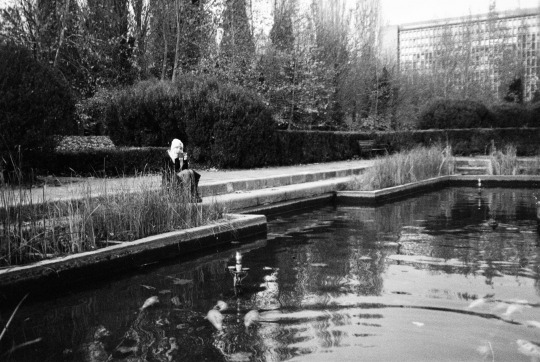
Fomapan 400
#35mm#pool#botanic garden#botanical#portraits#soc_mood#socialist building#architecture#landscape#radio contact#kiss fm#bucuresti#bucharest#romania
1 note
·
View note
Text
Old school replica now on my desk.
0 notes
Text
濃厚チョコブラウニーを抽選で10名様にプレゼント
■ 応募サイト: Kiss FM
■ 締切:2022年11月30日
■ 抽選:10名様
濃厚チョコブラウニーを抽選で10名様にプレゼントいたします。
「濃厚チョコブラウニーリッチミルク」は、大粒のチョコチップ、ミルクチョコレートを練りこんで焼きあげた濃厚なチョコブラウニーです。乳固形分15%でミルクたっぷりの濃厚な味わいです。
応募はこちら
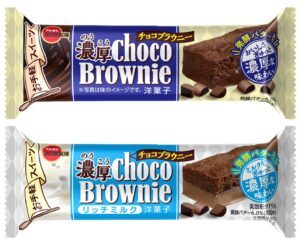
View On WordPress
0 notes
Text
PODCAST: Malcolm Venville
Whoever it’s with, whenever I do these podcasts, some personal link seems to turn up.
Something I’d forgotten or been unaware of – Paul Weiland was once my landlord, I judged the One Show with Gerry Graf 15 years earlier, David Holmes drew a poster for me 25 years earlier.
This isn’t like that, this time it really is personal (Isn’t that the Jaws 2 strap line?)
Malcolm and I started out together;…

View On WordPress
#Abbott Mead Vickers#Alastair Wood#AMV/BBDO#Andy Dymock#Andy McKay#Bartle Bogle Hegarty#BBH#BMP/DDB#Chris Palmer#Cromer Titterton#Duncan Sim#Edwards Martin Thornton#EMT#IPA Poster#Kawasaki#Kieran Simpson#KISS FM#Levi&039;s#Mark Denton#Mark Reddy#Mike McKenna#NSPCC#Paul Burke#Paul Silburn#Peter Wood#Richard Grisdale#Sony#Stuart Buckley#Tiger Savage#Tom & Walt
0 notes
Text
One small step for radio, one giant leap for black music radio in London : 1990 : KISS 100 FM launch day
The final few days before KISS FM’s official launch were a blur of frenetic activity and outright panic. It was only at this late date that construction of the three studios was completed by the contractors. Now, at last, they were ready for the engineers from the Independent Broadcasting Authority [IBA] to test and inspect. Much to my relief, their report required only a few minor alterations to the air conditioning system, after which the IBA issued KISS FM with a certificate of technical competence. I affixed it to my office wall, alongside the poster of Betty Boo [I had pinned as my memento of DJ Tim Westwood’s ‘reason’ for reneging last-minute on his scheduled daily daytime show].
With only days to go, I held two long, evening meetings with all the part-time DJs to explain what they could and could not do legally on-air. As former pirate DJs, they were unfamiliar with the conventions of libel, slander and other legal niceties which legitimate radio DJs have to learn. It was important for me to emphasise how essential it was for KISS FM to protect itself against prosecution or rebuke by the commercial radio regulator, the IBA. I went through their employment contracts, page by page, explaining what the jargon meant and what implications the clauses had for their radio shows. Also, I had to stress the importance of playing the right advertisements at the right time. This was a contractual requirement that had been relatively relaxed on pirate stations.
The night before the station’s launch, I was still busy putting the finishing touches to the inside of the studio until the early hours of the morning. Although two on-air studios had been built, there was only time to bring one of them up to scratch with all the accessories required for live broadcasts. With only hours to go, the engineers and I were frantically drilling holes in the studio walls to hang the storage racks for audio cartridges used to play advertisements, as well as wiring up the studio lights on the ceiling. I handwrote several large posters in thick felt pen to remind the presenters of the station’s address, its phone number for requests, and what to say about the station’s launch. Then, I had to spend several hours making labels with a Dymo and sticking them onto each piece of equipment in the studio for the presenters to know precisely which button performed which task. Finally, when everything was ready, I drove home and collapsed into bed.
The next morning, Saturday 1 September 1990, was the biggest day of our lives. Some weeks earlier, [managing director] Gordon McNamee had hung a handwritten sign on his office wall that read “X DAYS TO GO” with the number being changed daily. That number was now down to zero and the sign had finally become redundant. The day had arrived at last, whether we were ready for it or not. McNamee and I met at the station in the morning and locked ourselves away inside the production studio. McNamee wanted to perform a countdown to the station’s launch at midday but, in order to ensure that it went perfectly smoothly, he wanted to pre-record it. I set the timer on my digital wristwatch to five minutes and recorded McNamee’s voice, counting down at one-minute intervals from five minutes to one minute, and then counting down the seconds during the final minute until the alarm sounded. It took two attempts to get it right.
After that, we moved to the main on-air studio, taking the tape of the countdown with us. We had decided not to allow anyone other than essential station personnel into the studio for the launch. It was not a big enough room to comfortably accommodate more than a few people, and the presence of journalists would only have made us even more nervous. McNamee had arranged for Mentorn Films, which was making the television documentary about the station, to erect a tripod camera in the corner of the studio to record the whole event. A video link had also been booked to relay the picture live to a large screen in Dingwalls nightclub, where the official KISS FM launch party was being held that day.
With all the tension that surrounded that historic day, we quickly forgot that we were being watched by a video camera from the corner of the room. I spooled McNamee’s countdown recording onto a tape machine and started it at precisely five minutes to midday. McNamee’s countdown was now automatically being superimposed over the music from the test transmission VHS cassette that had been playing continuously for the last ten days. Over the beats of the Kid Frost hip hop track ‘La Raza,’ McNamee’s voice coolly counted down the minutes. At the one-minute point, McNamee counted “59, 58, 57, 56….” and I slowly faded out the music to increase the suspense of the moment. Accompanied by the pre-recorded sound of my digital watch alarm, McNamee said the magic words “twelve o’clock.”
I turned up the microphone in the studio for McNamee to make KISS FM’s live opening speech:
“This is Gordon Mac. There are no words to express the way I feel at this moment. So, with your permission, I’d just like to get something out of my system. Altogether – we’re on air – hooray!”
Everyone in the studio joined in a loud cheer, before McNamee continued:
“Welcome, London. Do you realise it’s taken us fifty-nine months, four hundred and sixty-five thousand, seven hundred and twenty working hours, plus three and a half million pounds, as well as all of your support over the last five years, to reach this moment? As from today, London and everywhere around the M25, within and without, will have their own twenty-four-hour dance music radio station. I’m talking to you from our new studios in KISS House, which is completely different from the dodgy old studios we used to have in the past [laughter in the studio]. The odds were against us. None of the establishment fancied our chances but, with the force of public opinion and our determination, the authorities had to sit up and listen and take notice. Today, I’m being helped by Rufaro Hove, the winner of ‘The Evening Standard’ KISS 100 FM competition. Rufaro was chosen from thousands of people who entered and she will press the button for the first record. But before that, the first jingle.”
McNamee pushed the cartridge button to play a lo-fi jingle from KISS FM’s pirate days. The sound of a telephone answering machine tone was followed by McNamee’s personal assistant, Rosee Laurence, saying:
“It’s me again. I forgot to say – hooray, we’re on. Bye-bye.”
The jingle ended with the sound of a phone being put down. McNamee continued:
“There we go, Rufaro, now you can press the first one. Go!”
The first record played on the new KISS FM was the reggae song ‘Pirates’ Anthem’ by Home T, Cocoa Tea & Shabba Ranks. The song was a tribute to London’s pirate radio stations. The rallying call of the chorus was:
“Them a call us pirates
Them a call us illegal broadcasters
Just because we play what the people want
DTI tries [to] stop us, but they can’t"
One of the song’s verses narrated the story of pirate radio in the UK:
"Down in England we’ve got lots of radio stations
Playing the peoples’ music night and day
Reggae, calypso, hip hop or disco
The latest sound today is what we play……..
They’re passing laws. They’re planning legislation
Trying their best to keep the music down
DTI, why don’t you leave us alone?
We only play the music others want”
These lyrics were the perfect choice for the station’s first record. KISS FM’s pirate history may have been behind it now, but the station had proven that pirate broadcasting had been necessary to open up the British airwaves to new musical sounds and fresh ideas for the 1990s. ‘Pirates’ Anthem’ was followed by the personal choice of the Evening Standard competition winner, ‘Facts of Life’ by Danny Madden. In the studio, the atmosphere was electric. It was difficult to believe that the few of us crowded into that little room were making broadcasting history. This was the creation of the dream that some of us thought we might never witness – a legal black music radio station in London, at last. It was difficult to believe we were really on the air.
Next, McNamee thanked “all the original disc jockeys, all the backers, all the new staff and last, but not by any means least, all of the listeners that have supported us over the five years.”
He introduced the record that he had adopted as KISS FM’s theme tune – ‘Our Day Will Come’ by Fontella Bass. The station’s first advertisement followed, booked by the Rhythm King record label to publicise its latest releases. Soon, McNamee’s stint as the station’s first DJ came to an end and his place was taken by Norman Jay, whose croaky voice betrayed the emotion of the day. Jay told listeners over his instrumental ‘Windy City’ theme tune:
“After nearly two very long years, all the good times, all the bad times we shared on radio … Thanks to all of you. Without your help, this day could not have been possible. On a cold and wet October day in 1985, KISS FM was born. Gordon Mac, George Power and a long-time friend of mine, Tosca, got together to put together a station which meant so much to so many. And thanks to those guys, Norman Jay is now on-air.”
Once Jay was on the air, McNamee said farewell to the rest of us in the studio and left to attend the station’s official launch party at Dingwalls. We stayed in the studio, still thrilled to be part of the celebration of that historic moment and enjoying the music that Jay played. Throughout the rest of the weekend, each KISS FM DJ presented their first show on the newly legal station. Many of them reminisced about the pirate days of KISS FM and played music from that era, when they had last graced the airwaves of London. To the majority of the station’s audience, who might never have heard of KISS FM until now, the weekend’s broadcasts must have sounded rather indulgent. Far from most of the records played that weekend reflecting the cutting edge of new dance music that the new KISS FM had promised, the songs mostly reeked of nostalgia and the station’s former glory days as a pirate station. This brief moment of indulgence was a healing process that was necessary for the station’s staff.
I remained in the studio the rest of the day, helping the DJs to grapple with the unfamiliar equipment and showing them the new systems with which they had to contend. Despite the intensive training they had been given in the last ten days, it had been twenty months since any of them had spoken a word on the radio, let alone presented a professional show. Nearly all the DJs looked incredibly nervous, and several seemed gripped with terror at the prospect of having to present a show from a fully equipped radio studio for the first time in their lives. I stayed there until the early hours of Sunday morning, with only an occasional break for a takeaway pizza.
Everybody involved in KISS FM, apart from the small group of us left in the studio – the DJ on the air, me, [head of talks] Lyn Champion and programme assistants Colin Faver and Hannah Brack – were at Dingwalls, enjoying the party celebrations. It felt strange, during the station’s first day on-air, that the rest of the huge KISS FM building was entirely empty. In the evening, the only lights visible from outside were in the tiny studio on the first floor. By two o’clock in the morning, I was absolutely exhausted. It had been an incredibly exciting day and everything had run much more smoothly than I had expected. I drove home, having left Champion and Brack to ‘babysit’ the studio overnight to ensure that the rest of the presenters could cope with the equipment.
[Excerpt from ‘KISS FM: From Radical Radio To Big Business: The Inside Story Of A London Pirate Radio Station’s Path To Success’ by Grant Goddard, Radio Books, 2011, 528 pages]
#commercial radio#Grant Goddard#KISS FM#local radio#London#music#pirate radio#radio#radio broadcasting#radio industry#radio sector#radio station#media regulation
0 notes